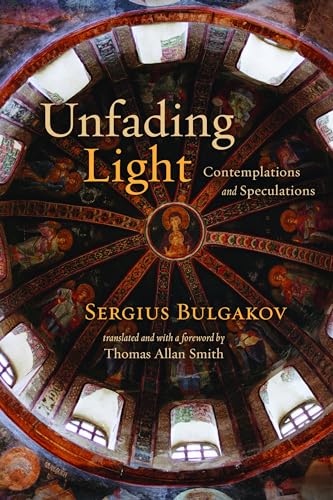wm b eerdmans publishing company december 2012 (1 risultati)
Tipo di articolo
- Tutti gli articoli
- Libri (1)
- Riviste e Giornali
- Fumetti
- Spartiti
- Arte, Stampe e Poster
- Fotografie
- Mappe
-
Manoscritti e
Collezionismo cartaceo
Condizioni
- Tutte
- Nuovi
- Antichi o usati
Legatura
- Tutte
- Rilegato
- Brossura
Ulteriori caratteristiche
- Prima edizione
- Copia autografata
- Sovraccoperta
- Con foto
- No print on demand
Paese del venditore
Valutazione venditore
-
Unfading Light: Contemplations and Speculations
Editore: Wm. B. Eerdmans Publishing Company December 2012, 2012
ISBN 10: 0802867111ISBN 13: 9780802867117
Da: Eighth Day Books, LLC, Wichita, KS, U.S.A.
Libro
Paper Back. Condizione: New. With its scholarly discussions of myth, German idealist philosophy, negative theology, and mysticism, shot through with reflections on personal religious experiences, Unfading Light documents what a life in Orthodoxy came to mean for Sergius Bulgakov on the tumultuous eve of the 1917 October Revolution. Written in the final decade of the Russian Silver Age, the book is a typical product of that era of experimentation in all fields of culture and life. Bulgakov referred to the book as miscellanies, a patchwork of chapters articulating in symphonic form the ideas and personal experiences that he and his entire generation struggled to comprehend. Readers may be reminded of St. Augustine's Confessions and City of God as they follow Bulgakov through the challenges and opportunities presented to Orthodoxy by modernity. With its scholarly discussions of myth, German idealist philosophy, negative theology, and mysticism, shot through with reflections on personal religious experiences, Unfading Light documents what a life in Orthodoxy came to mean for Sergius Bulgakov on the tumultuous eve of the 1917 October Revolution. Written in the final decade of the Russian Silver Age, the book is a typical product of that era of experimentation in all fields of culture and life. Bulgakov referred to the book as miscellanies, a patchwork of chapters articulating in symphonic form the ideas and personal experiences that he and his entire generation struggled to comprehend. Readers may be reminded of St. Augustine's Confessions and City of God as they follow Bulgakov through the challenges and opportunities presented to Orthodoxy by modernity.


